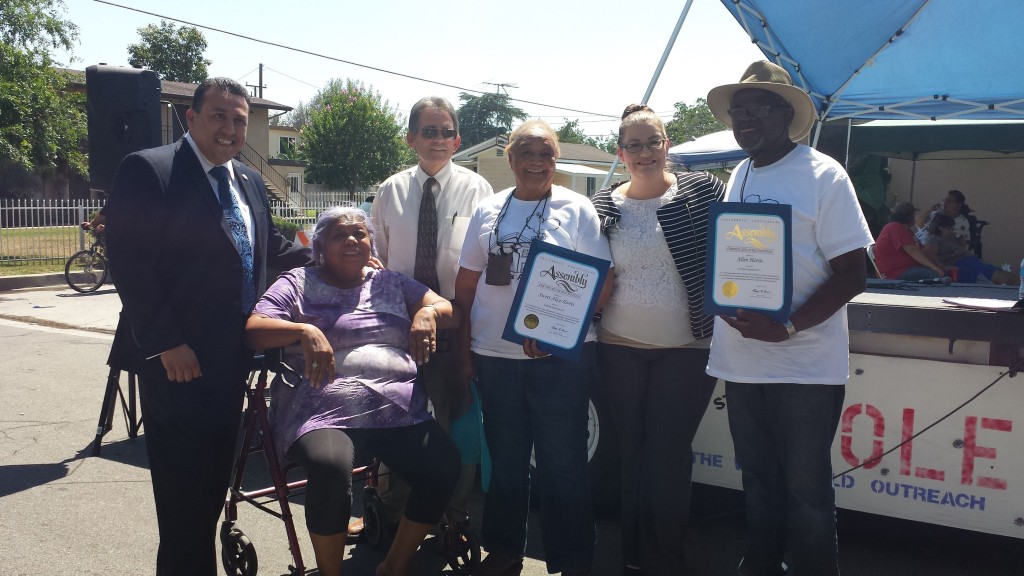
Lou Coleman
By Lou Coleman
I would just remind you that these are dangerous times for the church, the people of God. We are seeing the church develop an appearance that is more and more like that of the church in Laodicea in Revelation 3:14-22. A church that has everything it needs, except for the presence, power, and glory of God. Just as the Lord issued a call through Joshua, all those centuries ago, for His people to make of their minds as to whom they would serve, so He issues the same call to His people on this day. Hear the call God is giving to you, It’s Time to Make up Your Mind! And, it is! If the Lord be God then serve Him. If He isn’t, then go ahead and serve whatever has your heart. Whatever you do, stop trying to have the best of both worlds!
Matt.6:33 say, “But seek ye first the kingdom of God, and his righteousness; and all these things shall be added unto you.” The context of that verse is “prioritize.” Many of us choose the carnal, the physical, the clothing, the food, the shelter, the money and any and everything else that is not spiritual. The majority of us are too much like Peter. Jesus told Peter in Matt.16:21-26 that he cared not about the things of God but only the things of men. Jesus went on to say though that the soul of man was more important than gaining the whole world. Now that is hard for a worldly-minded person to understand. Why? Because they are so interested in what they can get out of life right now that they forget that there is an eternity out there much longer than the here and now. Making the right choices takes a heavenly-minded person.
Listen, Joshua knew the previous generation in Egypt had succumbed to man-made gods and had influenced this present generation. A choice had to be made between God’s will and man’s will. Joshua made the right choice and led the people to do the same. When Saul got saved on the road to Damascus (Acts 9:6) he had been making decisions based on what man wanted him to do. The Jewish leaders wanted him to round up all the Christians and put them to death and he was doing just that. Then he met the Lord and after he got saved his first statement was, “Lord, what wilt thou have me to do?” Everyone who names the name of Jesus should be asking, “Lord, what is it thou would have me to do?” But Joshua did imply in verse 19 Chapter 24 that the people couldn’t serve the Lord because it wouldn’t be convenient for them. God is too holy for your lifestyle! But I tell you, we should always choose the Spiritual over the carnal, the eternal over the temporal, God’s will over men and commitment over convenience. Oh, how we need more Christians making the right choices.
So how do we decide such an issue? Do we flip a coin? Do we follow the majority opinion? Not at all! As Christians, you and I look to God’s Word for direction. We look to the timeless, changeless Truths of God’s Word to guide us in our decision making process. And what does God have to say about this particular issue? I think Paul sums it up pretty well in the words of our text: “If we live, we live to the Lord; and if we die, we die to the Lord. So, whether we live or die, we belong to the Lord.” Paul presents God’s mercies as his strongest argument for giving ourselves to God. “I urge you,” Paul said, “by the mercies of God . . . to present your bodies…” (Rom. 12:1). When we recognize what God has done for us through his son Jesus Christ, the only response is to give ourselves completely to him. That should be motivation enough for us to give our whole lives to God. If reflecting on God’s mercies doesn’t move us, then we are in trouble. I ask you, where would you be without God’s love and forgiveness? Where would you be without God’s presence in your life? What kind of hope would you have without him?
You need to remember who you are, where you came from and what the Lord has done for you. Remember where He found you. What He did for you. How He has blessed you. How He has worked on your behalf time and again. How He has answered prayer and met needs. Remember His power in your life. You need to remember that since the day you were saved by grace, God has never left you nor had He forsaken you, as He said, Heb. 13:5; Matt. 28:20. Remember His presence in your life. You need to contemplate the fact that you have much today that you simply do not deserve! Think of it! You are saved, secure and headed to a home in Heaven! You are hell prove and in the body of Christ. You are indwelt by the Holy Spirit and live in its presence all the time. You have more than anyone can understand or imagine! God has been so good to you! In light of these truths, I wonder why you seem to have a hard time just simply loving and serving Him as you should.
Listen, Joshua’s command to the people was three-fold. They were commanded to “fear” God; clean up their lives by putting away their other gods; and they were to serve the Lord. This would put them in a position to put God back in the forefront of their lives. This is a command that God’s people need to take heed to today! We need to Fear the Lord – That is, we need to reverence and honor Him for Who He is. He deserves to be respected and loved by those He has redeemed! We need to put away our other gods! All those things in our lives that come ahead of the Lord need to be put away forever! And we need to serve the Lord with sincerity. We are His possessions and should live as such, 1 Cor. 6:19-20. The implication for us is that God does not want His people to live lives of hypocrisy! He wants us to be what we claim to be!
Joshua challenged the people to choose who they would serve and to get about it! The same choice stands before you today! It’s about time you stop straddling the fence and make up your mind whom you will serve. You cannot have both God and the world! You cannot have Him and all your distractions. Joshua set the example and laid down the gauntlet for the rest of the people by stating his clear intention to serve God. We need some Joshua’s in our day! We need some men and women who will settle it in their hearts that Jesus Christ and His Word and will are going to come before everything else in life! We need some who will set the example for others. We have too many who, by their lives, give justification for slackness in life. We need some who have a backbone of steel and who would rather die than let something come ahead of God in their lives. (Ill. Daniel – Dan. 1:8-19; the 3 Hebrews – Dan. 3:1-30; Daniel – Dan. 6:1-28; Ruth – Ruth 1:16-17. If He has to compete for your time, your attention, your money and your love, it calls your whole profession into question! God wants us to serve Him, love Him and honor Him. When we do that, He will bless our lives. It’s time to make up your mind. Choose whom this day you will serve! Forsake the foolish, and live, and go in the way of understanding. Know that because God is consistent we can be assured that He will deal with us exactly as He dealt with the people of old. That which He approved or disapproved of in the past will engender the same response. I tell you, it’s time to make up your mind!
 Westside Story Newspaper – Online The News of The Empire – Sharing the Quest for Excellence
Westside Story Newspaper – Online The News of The Empire – Sharing the Quest for Excellence


















